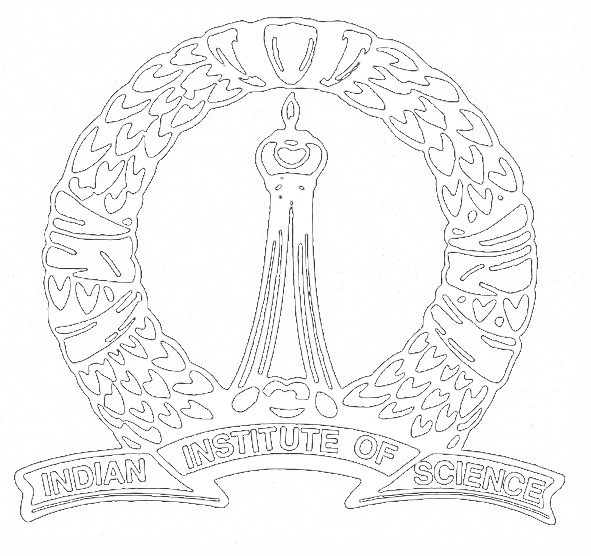PhD Thesis defence
Title: Representations of Special Compact Linear Groups of Order Two: Construction, Representation Growth, Group Algebras, and Branching Laws
Speaker: Hassain M. (IISc Mathematics)
Date: 05 December 2019
Time: 3 pm
Venue: LH-3, Mathematics Department
Let $O$ be the ring of integers of a non-Archimedean local field such that the residue field has characteristic $p$. Let $P$ be the maximal ideal of $O$. For Char$(O)=0$, let $e$ be the ramification index of $O$, i.e., $2O = P^e$. Let $GL_n(O)$ be the group of $n \times n$ invertible matrices with entries from $O$ and $SL_n(O)$ be the subgroup of $GL_n(O)$ consisting of all determinant one matrices.
In this talk, our focus is on the construction of the continuous complex irreducible representations of the group $SL_2(O)$ and to describe the representation growth. Also, we will discuss some results about group algebras of $SL_2(O/P^r)$ for large $r$ and branching laws obtained by restricting irreducible representations of $GL_2(O/P^r)$ to $SL_2(O/P^r)$.
Construction: For $r\geq 1$ the construction of irreducible representations of $GL_2(O/P^r)$ and for $SL_2(O/P^r)$ with $p>2$ are known by the work of Jaikin-Zapirain and Stasinski-Stevens. However, those methods do not work for $p=2$. In this case we give a construction of all irreducible representations of groups $SL_2(O/P^r)$, for $r \geq 1$ with Char$(O)=2$ and for $r \geq 4e+2$ with Char$(O)=0$.
Representation Growth: For a rigid group $G$, it is well known that the abscissa of convergence $\alpha(G)$ of the representation zeta function of $G$ gives precise information about its representation growth. Jaikin-Zapirain and Avni-Klopsch-Onn-Voll proved that $\alpha( SL_2(O) )=1,$ for either $p > 2$ or Char$(O)=0$. We complete these results by proving that $\alpha(SL_2(O))=1$ also for $p=2$ and Char$(O) > 0$.
Group Algebras: The groups $GL_2(O/P^r)$ and $GL_2(F_q[t]/(t^{r}))$ need not be isomorphic, but the group algebras ‘$\mathbb{C}[GL_2(O/P^r)]$’ and $\mathbb{C}[GL_2(F_q[t]/(t^{r}))]$ are known to be isomorphic. In parallel, for $p >2$ and $r\geq 1,$ the group algebras $\mathbb{C}[SL_2(O/P^r)]$ and $\mathbb{C}[SL_2(F_q[t]/(t^{r}))]$ are also isomorphic. We show that for $p=2$ and Char$(O)=0$, the group algebras $\mathbb{C}[SL_2(O/P^{r})]$ and $\mathbb{C}[SL_2(F_q[t]/(t^{r}))]$ are NOT isomorphic for $r \geq 2e+2$. As a corollary we obtain that the group algebras $\mathbb{C}[SL_2(\mathbb{Z}/2^{r}\mathbb{Z})]$ and $\mathbb{C}[SL_2(F_2[t]/(t^{r}))]$ are NOT isomorphic for $r\geq4$.
Branching Laws: We give a description of the branching laws obtained by restricting irreducible representations of $GL_2(O/P^r)$ to $SL_2(O/P^r)$ for $p=2$. In this case, we again show that many results for $p=2$ are quite different from the case $p > 2$.
- All seminars.
- Seminars for 2019
